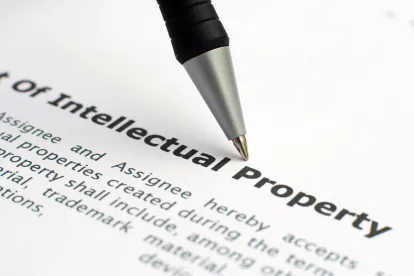Takeaway: A petition that is filed late due to a petitioner’s failure to electronically submit a petition in PRPS may still be accorded an earlier filing date if the failure was due to an inadvertent clerical error and all statutory requirements had been otherwise satisfied.
In its Decision, the Board granted Petitioner’s motion to correct the filing date and accorded the Petition a filing date of November 6, 2014. The Board explained that the “purpose of a petition is to give adequate notice to a patent owner of the basis for relief by laying out the grounds of unpatentability proposed by a petitioner, as well as any supporting evidence.” To be accorded a filing date, “(1) the petition [must comply] with 37 C.F.R. § 42.104; (2) the petitioner [must effect] service of the petition on the correspondence address of record as provided in 37 C.F.R. § 42.105(a); and (3) the petition [must be] accompanied by the fee to institute required by 37 C.F.R. § 42.15(a).” Filing of a petition is to be done electronically, and according to the Board’s website, only after clicking “Submit” will a petitioner “receive a petition filing receipt indicating that the petition was filed properly.”
According to the Motion, supported by declarations from lead and backup counsel, Petitioner uploaded the Petition, served it on Patent Owner, and submitted the fee payment on November 6, 2014. However, the “Submit” button on the Patent Review Processing System (PRPS) was not pressed until November 7, 2014 due to an alleged technical issue or inadvertent clerical error. The Board found that all statutory requirements for filing a petition were met on November 6, but for clicking “Submit.” The Board was also persuaded that the failing to click “Submit” was a clerical error and “that it would be appropriate under the circumstances to correct the filing date [accorded] to the Petition to November 6, 2014.”
Patent Owner argued the filing date should not be changed for several reasons, which the Board addressed in turn. First, the Board was not persuaded that granting the motion would erase the rules for filing petitions. In this regard, all statutory requirements had been met but for a clerical error, and as the Board noted, requirements in the rules may be waived. Second, the motion was not “tantamount to a request for a one-day extension” of time because the Board found that the requirements had been met on November 6. The Board also disagreed with Patent Owner’s reliance upon a previous Board decision, which involved the failure to identify the real party-in-interest. The Board was not persuaded by other arguments set forth by Patent Owner, and finally found that Patent Owner was not prejudiced by the requested relief.
2Wire, Inc. v. TQ Delta LLC, IPR2015-00239, 240, 241, 242, 243, 247
Paper 10: Decision on Motion to Correct Filing Date
Dated: January 15, 2015
Patents: 7,471,721; 8,090,008; 8,073,041; 8,218,610; 8,355,427; 7,292,627
Before: Kalyan K. Deshpande, Justin T. Arbes, and Trevor M. Jefferson
Written by: Deshpande



 />i
/>i

